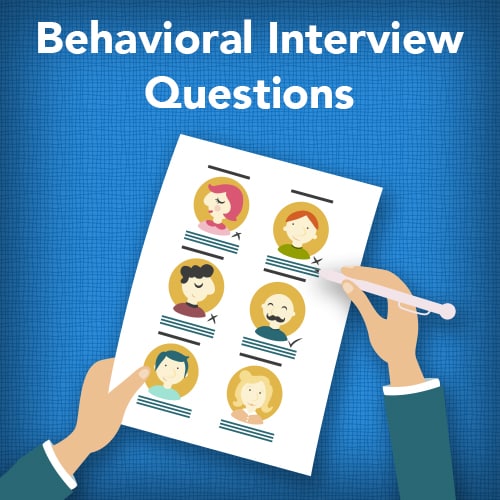

Interview questions reflect what the company is seeking in a candidate. The questions are often an extension of the job description and required qualifications. Makes sense, right? With this in mind, it’s important to also consider general hiring trends as they can indicate a shift in priorities for many companies, regardless of the field. These days, companies are expanding their search beyond technical knowledge, looping in soft skills as a major factor in hiring. Gone are the times when subject matter expertise alone could land a candidate the job.
Soft skills are considered people skills or transferrable skills, such as strong communication, organization, leadership, adaptability, problem-solving, work ethic, and many more. They can help a company determine how well you’ll fit into the company culture, which lends insight to your potential productivity. So how do interviewers measure your soft skills? One way is asking behavioral questions.
Behavioral questions usually start with the phrase, “Tell me about a time…” or “Describe a situation…” These types of broad questions focus entirely on previous work experiences. The reasoning is that by demonstrating how you responded in the past will also indicate how you will respond in the future. Answering behavioral questions displays your work values, soft skills, hard skills, and personality.
When interviewers ask these questions, they’re looking for a few things:
How did you approach the situation?
What problem-solving skills did you use / what value did you contribute to the situation?
What does the question mean to you?
With this one, let’s look at a specific example. Imagine an interviewer asks you to tell them about a time when you disagreed with your boss. They’re looking not only to see how you define disagreement in the workplace, but also how you handled the situation.
You can prepare for behavioral questions by looking at the job description and determining which skills the employer wants in a candidate. Then, think about experiences from past jobs that will demonstrate those behavioral skills. If they’re looking for someone who can take charge, think of a leadership example. You want to be as descriptive as possible, remembering to not only highlight what worked well, but to positively state any challenges you faced, such as working with different personalities on the same team and what resulted in the end. As with all interview question prep: practice aloud.
Some general examples of behavioral questions and prompts include: Tell me about a mistake you made. Describe a challenging situation at work. How did you handle meeting a deadline?
One strategy to effectively answer the questions is the STAR technique, which you can read about here.
You can visit a no-cost Goodwill Career Center and ask a career advisor for assistance with your job search or interview preparation. Call 602-535-4444 to find a center near you or visit our locations page. Good luck with your job search!